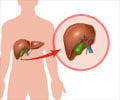The evidence addressing key questions about results of organ transplants in HIV patients is very little and inconclusive.
The evidence addressing key questions about results of organ transplants in HIV patients is very little and inconclusive, however, a larger multicenter trial now underway could provide answers, according to a report by the ECRI Institute.
Does organ transplantation work as well in HIV-positive patients as in those without HIV infection? A new systematic review of six small studies indicates that the jury is still out; however, a larger multicenter trial now underway could provide answers.The analysis of current data on kidney and liver transplantation in HIV-positive patients found that the small number of patients in each study was one of several roadblocks to determining the effectiveness of organ transplantation in these patients.
The Emerging Technology (TARGET) Evidence Report comes from the ECRI Institute, a global independent nonprofit that researches the best approaches to patient care and patient safety and provides that information and technical assistance to the health care community worldwide.
About 1 million people are living with HIV/AIDS in the United States, with 40,000 new HIV diagnoses each year, according to 2003 statistics from the Centers for Disease Control and Prevention.
Many HIV-positive patients also develop other conditions such as diabetes, hypertension, cirrhosis and hepatitis that can lead to kidney and liver failure. Patients then require kidney or liver transplantation to survive.
According to the new review, for the first 10 to 12 years of the U.S. HIV epidemic, most physicians believed HIV-positive patients should not have organ transplants for several reasons, including the incurable nature of the disease and the shortage of organ donors.
LaDonna Mason, author of the ECRI review, said physician attitudes about the subject diverge.
The review examined six small retrospective studies comprising 193 HIV-positive patients who received kidney or liver transplants in one of 21 U.S. medical centers, and compared their outcomes to patients without HIV who received similar transplants.
Two of the studies found no significant difference in survival of a transplanted kidney organ itself or in overall patient survival between HIV-positive and HIV-negative patients. Four studies reported lower rates of overall patient survival in HIV-positive patients than in HIV-negative patients.
Part of the problem in interpreting the data was that the available studies did not match patient characteristics between the two groups that could make a difference in outcomes, such as co-existing medical conditions or age.
Moreover, the “patient sample is likely too small to detect clinically significant differences,” Mason concluded.
According to the review, however, there is currently a large, multicenter trial underway — known as the HIVTR study — that is evaluating the safety and effectiveness of kidney and liver transplantation in 275 HIV-positive patients. Mason said she is hopeful the HIVTR study will provide data about the risks of transplantation that are specific to the HIV-positive transplant population and long-term survival data.
“It’s important to keep in mind that the patient population available to recruit from for a clinical trial on transplantation in HIV-positive patients is relatively small,” she said. “Few HIV-positive people need — and then actually receive — a transplant. So the fact that this trial is multicenter and intends to enroll 275 patients, including some pediatric transplant recipients about which no published data are currently available, is promising.”
When asked about physicians’ attitudes about organ transplantation in HIV-positive patients, John Fung, M.D., chairperson of the Department of General Surgery at the Cleveland Clinic, said that there is a possible reluctance from physicians to match HIV-positive patients with available kidneys and livers.
“There are several studies that have expressed and documented concerns on the role of HIV transmission to health care providers, including transplant surgeons,” he said. “While the impact of this on the ability of HIV patients to receive a transplant hasn’t been quantified, it is likely that there is a negative impact.”
“The controversy is that while transplantation is a life-altering and saving therapy with reasonably good outcomes, the attitude is not one to promote this therapy in HIV patients,” Fung said.
Source-Newswise
SRM
 MEDINDIA
MEDINDIA



 Email
Email










